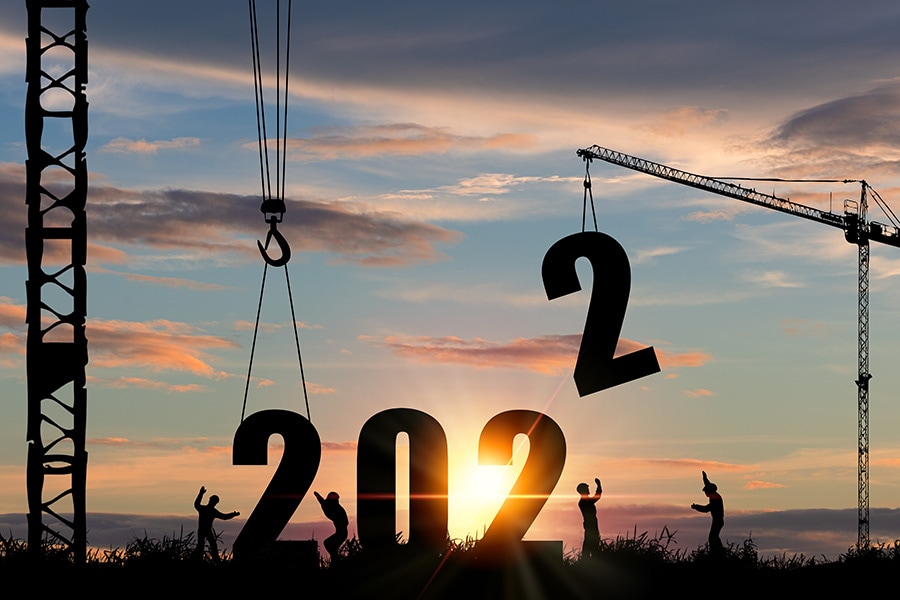A 2022 vision: 5 lessons from 2021 coming into focus
Look at themes and observations Darden experts explored over the course of 2021. The lessons that emerged may inform how leaders lead in 2022


 In the age of automation, the human traits of judgment, compassion and ethics are critical to maintaining business success
In the age of automation, the human traits of judgment, compassion and ethics are critical to maintaining business success
Image: Shutterstock
Much about 2021 looked like 2020. But as the world adapted to ongoing pandemic life, we also had to stay nimble in the face of uncertainty. We tried to roll with the punches. 2021 saw new developments and challenges, as well as existing issues that evolved.
Here, we look at themes and observations Darden experts explored over the course of 2021. The lessons that emerged may inform how leaders lead in 2022.
One of the effects of the past year: reassessed priorities. People are asking themselves existential questions about how they spend their time and why, and many are leaving their jobs for greener pastures.
The Great Resignation means that those reevaluating their careers — and those trying to keep their people on board — need to understand what’s important to both sides. How does one balance a new opportunity with a renegotiation in a current position? Can an organization be flexible in terms of both time and space — are working hours fluid, can people do their jobs remotely? And how permanent is the shift: Will we go back to square one? What are the lasting effects? And what are the expectations of the generation that’s entering the workforce?
Perhaps we cannot go back to the way things were. Many organizations have already shifted to more flexibility — for the sake of retaining talent and encouraging work-life balance, as well as for convenience and safety. Some even acknowledge the importance of psychological safety, ensuring all employees feel appreciated and acknowledged, regardless of location or amount of face-to-face time. Managers will define the contours of the new world of work, both on individual bases and, collectively, the macro scale.
But much will depend on the roles of individual workers some positions require physical presence, while some benefit from focused time alone. Collaboration will always be important, and workplaces, even for those physically present, may shift to reflect that need for a different use of space.
At the beginning of the pandemic, there was concern about the availability of toilet paper. Now it’s commonplace to blame supply chains for issues of product availability and price, from computer chips to groceries.
The phenomenon of workers leaving their jobs in droves has led to delays in manufacturing and transport. The recent past has also seen government-imposed quarantines, closed borders and heightened geopolitical tensions. Added up, it all brought the fragility of global supply chains into stark relief. While just-in-time production is time and cost efficient, could sustainable sourcing be a competitive advantage? How do global trade, small businesses, ESG, diversification, and government regulations fit into the equation? Governments as well as companies are asking themselves those questions.
The coronavirus won’t be the last shock to global supply. Leaders must take a nuanced eye when it comes to so many moving elements of the formula in balancing efficiency and resiliency in the face of crisis.
If efficiency needs to find a compromise with resiliency, there’s good news: When it comes to project management, data science and artificial intelligence may be able to mitigate issues of “over budget and past due." In a world in which uncertainty and flexibility define the game, harnessing data and machine learning could change the world for individuals, organizations and, ultimately, the world.
The present and future of planning and project management should be considered through the perspective of revolutionary technological tools. So should customer satisfaction, the implications of tracking employee behavior, the long-term effects of AI for the workforce at large, and Facebook and the Metaverse. For more insights, please see the Ideas to Action Digital Transformation collection.
While COVID-19 has accelerated mass adoption of new technologies, it also brings into sharp relief the fact that some factors are constant: Leadership is profoundly human. An organization is a set of people, after all. Technology can make our processes more efficient and it is a valuable tool, but it cannot make us better colleagues, employees or leaders.
In the age of automation, the human traits of judgment, compassion and ethics are critical to maintaining business success. Roles that require human traits like empathy, creativity and motivation are the ones that provide an opportunity to reshape the future of work and drive success for both organizations and individuals. But to that end, leaders should be prepared to teach the people reporting to them new skills — including technological skills. The two will work hand-in-hand.
For more on how leadership has changed as a result of the COVID-19 pandemic and the importance of developing the skills of mindfulness and communication, read “Leadership Kindness." And for more about how we can harness the power of technology now — as well as company culture diversity, equity and inclusion and teamwork — read “6 Ways Business Leaders Should Prepare for 2022 and Beyond."
Individuals, Leaders and Organizations
People care what companies do, not just as individual employees, but in their other roles as stakeholders: customers, shareholders and community members, for example. And companies — business as a whole — can have major impact on major issues. Is the company making climate change efforts? Does it work on DEI initiatives? Does it embrace responsible capitalism? Does it work with workers’ needs?
First Published: Feb 23, 2022, 10:58
Subscribe Now